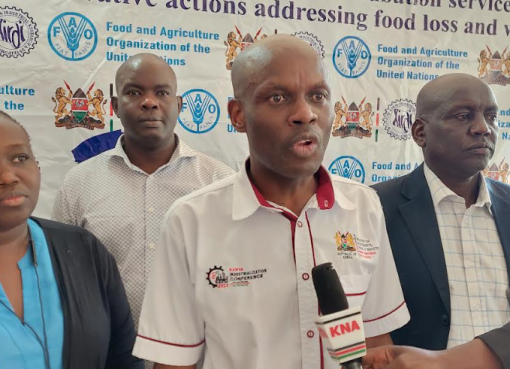Mango production in Kenya is a major economic enterprise and out of almost 60 known varieties only four varieties namely Apple, Ngowe, Kent and Keitt are the commonly cultivated fruit commercially by farmers.
The Mango industry has a key competitive advantage that makes its value proposition unique to the market considering the country prides itself in having one of the longest mango seasons that ranges from October to March (high season) and another shorter season that lasts from April to June covering mainly the Coastal region.
Grown and dominated by the Coastal region and the greater Ukambani region of Machakos, Kitui and Makueni Counties, farmers in these areas have concentrated on the Apple, Ngowe and Kent varieties with an eye for the export market and keen on making the crop a major foreign exchange earner for the country.
Mutheu Kithuma is one such farmer who started growing mangoes for export in 2013 on her Kibwezi- Agro farm, in Makueni targeting the premium European market.
Starting huge with 180 acres of land and 10,350 trees at different stages of production, Mutheu who shifted from the Tourism business to venture into mango production started off well with a huge investment but as soon as she settled down, the 2014 Kenya self-ban on mango export set in.
“The self-imposed ban of 2014 was caused by a pest – fruit fly, which some of us growers at the time did not even know what it was all about. I reached out to KEPHIS to find out more and I was directed to ICIPE,” she said.
Mutheu says ICIPE was supportive and came on board to assist and train farmers on the importance of implementing Integrated Pest Management (IPM), to create a fruit-fly free zone as well as clearing of the seed weevil both of which were quarantine pests in the EU markets.
Despite the self-imposed ban, Mutheu did not give up and continued working with ICIPE and improving on her mangoes, exporting mostly to the United Arab Emirates countries with the hope that the EU market will be back.
According to the Horticultural Directorate, after an eight-year self-imposed ban, resulting from the fruit fly outbreak, Kenya is now officially resuming its mango exports to the European market in September after adhering to all requisite protocols. All this time, Kenya has instead been exporting mangoes to the Middle East.
Although the Middle East market is not so bad, Mutheu says the EU market would provide better returns in terms of money in the pockets of farmers by 20 percent because of structure and systems that are consistent unlike the Middle East whose market is fluid, systems non-existent and sometimes prices are unpredictable. EU market has a guarantee and assurance that 80 percent of shipped consignments would be paid.
With the imminent resumption of the EU market, Mutheu and other farmers are excited since they reckon the teething challenges are now behind them. She is particularly optimistic about the future having been involved in working towards opening up of the market by the virtue of her mango produce being used as a sample to evaluate compliance with the hot water treatment protocol, a requirement by EU.
The hot water treatment is the final process used to disinfect mangoes from fruit flies. The fruit is dipped in water at a certain degree depending on type and weight of the mango and this is done at the packaging stage before the produce is shipped to the market.
“We are hopeful. The European market resuming in September will come as a major boost to myself and also other farmers in Makueni given the earnings will shoot by 20 percent compared to what we have been getting from the UAE countries,” Mutheu says.
Before the commencement of the EU market, farmers have had to control the fruit fly and seed weevil using traps and finalizing their produce with the hot water treatment hence no reason not to gain entry into the market.
Mutheu says that she expects to export 2000 mangoes this coming season and although as lower Makueni farmers they will not stop exporting also to the UAE, she noted that Egypt and India have been giving them a run for their money in the Arab countries.
To beat the competition, however, she says farmers should cultivate their fruit targeting the off-season market of the end of August and Mid November where there is a gap in the international market and because the giant exporters of India and Pakistan are out of the market at the time.
Mutheu also appealed to the Ministries of Trade and Foreign Affairs to ensure they protect farmers when it comes to cross border trade by ensuring the right policies are in place.
The Kibwezi- Agro owner, who is now among the major and large-scale exporters of mango produce in the country, says value addition is the way to go for both large- and small-scale farmers not only for the local but also regional markets.
She gave an example of Rwanda who import their pulp from India and yet here in Kenya there is so much mango. “With 1000 tons we are doing here if we decided to go the pulp way, we can curve out a niche and tap into that market easily,” she said.

This is something as Kibwezi Agro are working towards, Mutheu says but adds that for now they are only dealing with fresh mango export to the EU which is in demand. “We are also diversifying from the current 10, 350 trees which are 95 percent apple mango and an early maturity crop, and looking at bringing in Kent and Keitt varieties which are late maturing. What this means is working on getting in the market early and also at the tail end of the market after the glut is out then we are still able to be in the market.
Japheth Mbandi, Technical manager Keitt , a leading exporter of fruits in Kenya says that due to Kenya’s favourable climatic conditions, mangoes internationally fetch as high as Sh350 per box of 4 kilogrammes translating to about Sh35 apiece.
The Directorate of Horticulture says the country is ready to resume the mango export because of suppression of fruit flies.
Wilfred Yako, Assistant Director of Regulations and Compliance at the directorate, says Kenya is now set to return to the EU market following the crop sanitation initiatives that have been put in place considering that the levels of fruit fly infestation have drastically gone down and this gives assurance that farmers will now access the EU market.
Yako added that given that some of the Kenyan mangoes sold to the Middle East are repackaged and end up in the Europe Countries thus denying farmers money and added with a mark of origin, resumption of the EU market will assist the farmers since they will sell direct and thus give the country the credit as one of the countries exporting mangoes
According to the Horticultural Crop Directorate Makueni County tops in mango production by value at 30 percent, followed by Machakos 23 percent, Kilifi 16 percent, Kwale 8 percent and Meru at 4.5 percent.
By Wangari Ndirangu





